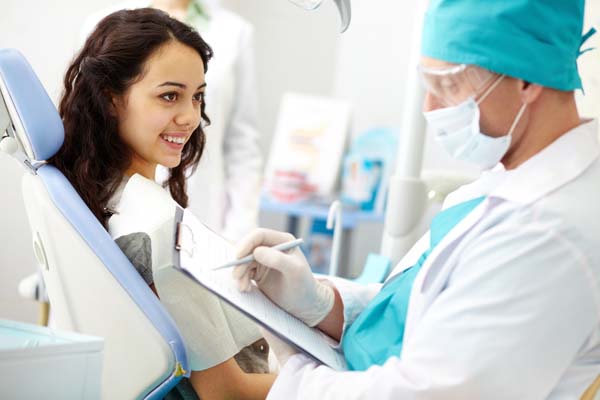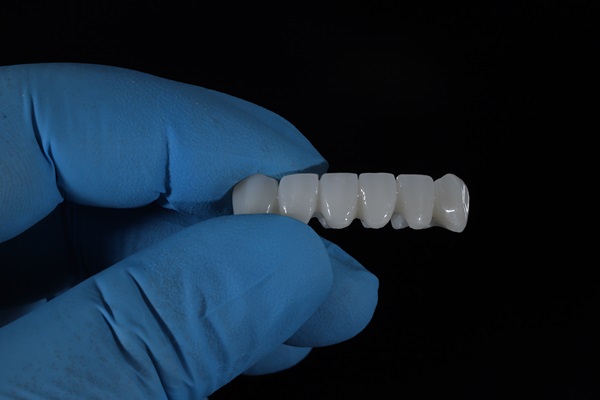Emergency Dentistry and the Coronavirus (COVID-19) Disease: Important Sterilizing Procedures

Dental health professionals are responsible for providing a safe environment for emergency dentistry procedures during the Coronavirus (COVID-19) disease outbreak. Considering the risks of cross-infection in dental offices, the American Dental Association and the Center for Disease Control (CDC) have developed guidelines to control infections during any emergency dentistry care. This includes a thorough cleaning and certain sterilizing procedures for all dental instruments and surfaces after each use.
Sterilizing procedures for dental instruments
Sterilization during emergency dentistry care is the process of eliminating every microbe, including viruses and bacterial spores that are present on dental instruments or surfaces within the office. According to the CDC, dental instruments are categorized into three sections, based on the risk of transmitting infection among dental healthcare professionals and patients.
Critical instruments: These are tools that are exposed to the bloodstream through bone or soft tissue penetration. These instruments must be sterilized with heat, dry or chemical sterilization after every use. Examples include scalpels, bone chisels, dental forceps and surgical burs.
Semi-critical instruments: These instruments do not contact the bloodstream. Instead, they touch the oral mucous membrane or non-intact skin. The CDC states that the instruments should be sterilized after use. If this is not feasible, an approved high-level disinfectant is acceptable. Examples include amalgam condensers, dental mirrors and impression trays.
Non-critical instruments: These instruments only touch the mucous membrane or intact skin. These tools have minimal risk of cross-infection and can, therefore, be cleaned with low-level disinfectants. Examples include x-ray heads and pulse oximeters.
Sterilization and disinfection of dental tools are only effective if done correctly. The following are important processes to note when sterilizing dental instruments:
Set up a central instrument processing area: Every contaminated dental instrument must be cleaned of blood or debris before sterilization. The dental practice should have a different area designated for cleaning contaminated dental instruments. They should soak the instruments in water or detergent soon after use to prevent blood or debris from drying. They can also use ultrasonic devices for improved cleaning.
Packaging and storing: Instruments that will be used for specific emergency dentistry treatments will be stored in special packages before sterilization. This is to reduce the risk of contamination during storage and transport after sterilization.
Sterilization
Sterilization takes different forms in emergency dentistry, depending on the necessary level of sterilization and type of dental material. The methods include the following:
Sterilization with autoclave: This is the most effective and popular sterilization method used in emergency dentistry care. The pressurized steam in an autoclave can eliminate all microbes and their spores. The autoclave sterilizes instruments at 121 degrees for 15 minutes.
Dry heat ovens: These are electrical appliances that use dry heat to sterilize dental tools. Since water is not necessary for the sterilization process, they do not have much pressure internally. Therefore, they are safer than steam autoclaves. It is also possible to get the optimal temperature for sterilization since heat production is controlled electrically. However, they may not eliminate all microbes like prions.
Chemical vapor sterilization: This involves heating a mixture of different chemicals such as ketones, formaldehyde, alcohol and water under pressure to create a sterilization gas.
Emergency dentistry during the COVID-19 outbreak
The sterilization of dental instruments is essential to meet the cross-infection protocol necessary for emergency dentistry and the coronavirus (COVID-19) disease. Therefore, the CDC and ADA recommend using different indicators to ensure thorough sterilization.
Request an appointment here: https://irvineimplantdentistry.com or call Canyon Dentistry at (949) 753-6000 for an appointment in our Irvine office.
Check out what others are saying about our services on Yelp: Read our Yelp reviews.
Recent Posts
You can have an emergency dental visit with your general dentist. Knowing when you may need urgent dental care will prevent the dental problem from worsening. It will also relieve your pain and discomfort. If you want to know if you may need an emergency dental visit, here are the signs to watch out for.Persistent…
A dental emergency can come suddenly and without warning. It throws a wrench in your schedule and you are left panicking, grabbing the phone and dialing the closest emergency dentist, hoping for the best. Patients can be forced to deal with many kinds of dental emergencies: a lost filling, a loose crown — or even…
A chipped tooth is not always a serious dental condition unless the damage reaches the pulp chamber. However, that does not mean it is okay to ignore a chipped tooth simply because it is not causing pain. The most likely part of a tooth to be affected by a chip is the outer layer known as…
Regular visits to a general dentist are an essential component of good health and overall wellness. It is important for both adults and children to have their teeth cleaned and examined by a dental professional every six months. In fact, most physicians and dentists recommend that regular dental checkups begin around age one, when a…


